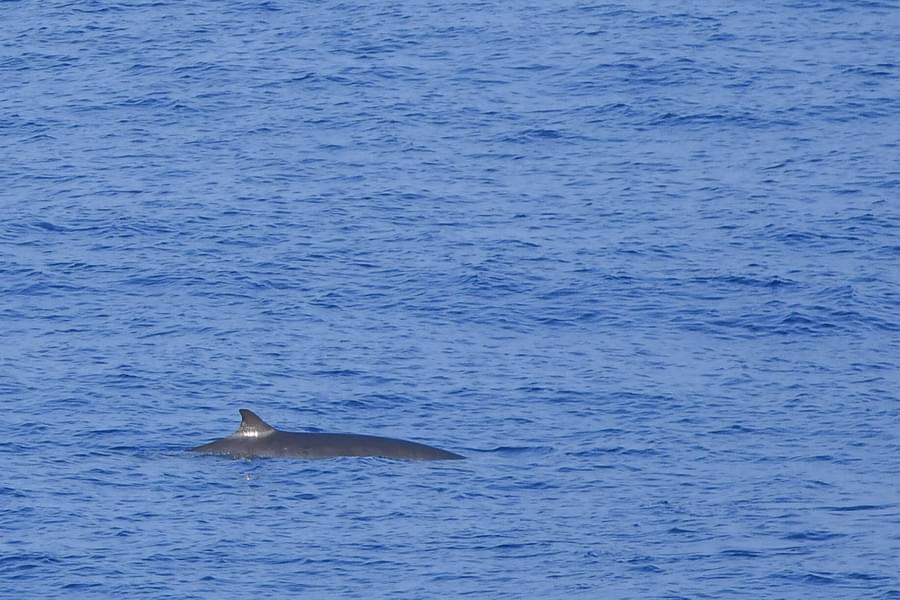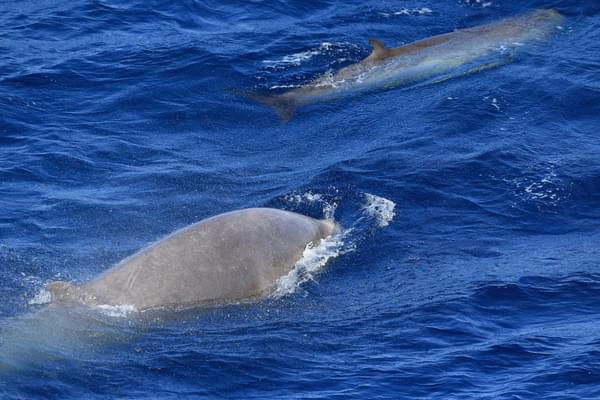What is the most poorly known large mammal species of modern times? An animal that is so rare, that it has never been seen alive, whose population, anatomy, breeding patterns and habitat we know nothing about whatsoever and which was only positively identified this century?
If the question came up in a pub quiz, what would you put forward as the answer?
The answer is a whale that the marine conservation community knew almost nothing about at all, beyond a few skull and jaw fragments salvaged from South Pacific beaches and a misidentified stranding. But on the 4th July 2024 that all changed, and almost overnight, we’ve learned more about the spade-toothed beaked whale than at any point in history. More on this exciting discovery later.
The Spade-toothed beaked whale is the rarest species of beaked whale. It wasn’t until 2002 that scientists realised that skull bone fragments from separate whales, found over 100 years apart in Chile and New Zealand, belonged to the same species, which was named Mesoplondon traversii in honour of the naturalist Henry Travers, who collected the first jaw bone fragment in New Zealand in 1872.

What distinguishes the whale is its very large teeth, which can grow up a huge 23cm long. The teeth are close in size to those of the strap-toothed beaked whale. However the teeth of the spade-toothed beaked whale are much wider, and a knobbly denticle on the tip of the teeth (which is present on both species) is much more pronounced. It is thought that the denticle is only present in males and that it smooths down over time due to aggressive territorial behaviour with other males. It’s common name was chosen because the part of the tooth that protrudes from the gums was a shape similar to the tip of a flensing spade as used by 19th-century whalers.
In 2010, what were initially identified as a pair of Gray’s beaked whales (adult female and juvenile male) stranded and then died on a beach in the eastern Bay of Plenty, New Zealand. Scientists took tissue samples and the whales were then buried on the beach. It was only when the samples were analysed a year later, that it was realised that the animals were spade-toothed beaked whales. The team of scientists raced back to the site to recover the remains, but the sea had partially washed away the skeleton of the adult female. That must be what losing a winning lottery ticket must feel like.
And so the species continued to exist as a known unknown. An enigma studied via beach weathered bones and some DNA samples.
And then, everything changed. On 4 July 2024, an intact, dead, 5m long, blackish-silver whale was washed ashore near Taieri Mouth, on the southern east coast of South Island, New Zealand. A male, spade-toothed beaked whale! Once again, scientists raced to collect the whale, moving it to cold storage so that it could be preserved ahead of an autopsy and dissection.
It is poignant to reflect on this. A cetacean that until now has only existed through some bone fragments and DNA, and which no-one besides 19th Century whalers may have ever seen alive, is about to reveal its secrets.
This is an exciting and important moment for science, since we may get some insights into its genetic linkages to other cetacean species, its diet and anatomy. But it makes us realise how fortunate we are that ORCA’s work is about the study of whales and dolphins that are living and visible, and being able to open up oceans for passengers and guests aboard ships and to help them see these magnificent animals living in their natural environment.

ORCA's work to protect whales and dolphins has never been more important and to help safeguard these amazing animals for the future we need your help. Please support our work by donating at www.orca.org.uk/donate to help us create oceans alive with whales and dolphins
Image: Cuvier's beaked whales, Paul Soulby

